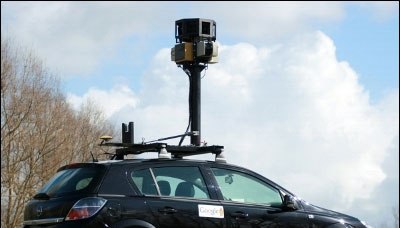

Google said this week that its Street View cars are back on the roads in the UK, following the “WiSpy” privacy controversy which saw the entire fleet grounded.
Google grounded its Street View cars, which collect street-level photos and 3D data, in May after admitting to inadvertently collected more than 600GB of data from unsecured Wi-Fi networks around the world. The incident provoked outrage from governments and privacy advocates at the time, and Google is subject to ongoing investigations by Scotland Yard, the US Federal Trade Commission and European regulators.
The company said it has now removed the Wi-Fi antennas from the cars, which will continue to collect photos and 3D data. The photos are aimed at Google Maps’ Street View feature, while the 3D data is used to improve Google’s maps.
In the coming weeks the cars will travel across England, Scotland, Northern Ireland and Wales, as well as the Isle of Wight, Google said. The company said it will publish the locations to be mapped on the Street View hompage.
Street View is currently running in more than 20 countries. In the UK, it includes tourist destinations such as Stonehenge, The Eden Project, Warwick Castle and several National Trust properties, as well as residential and commercial areas.
The first Street View cars returned to service last month, Google said in a 9 July blog post, heading first to Ireland, Norway, South Africa and Sweden.
“The Wi-Fi data collection equipment has been removed from our cars in each country and the independent security experts Stroz Friedberg have approved a protocol to ensure any Wi-Fi-related software is also removed from the cars before they start driving again,” said Google Geo vice president of engineering Brian McClendon in the post. “We recognise that serious mistakes were made in the collection of Wi-Fi payload data, and we have worked to quickly rectify them.”
Responding to outrage from governments and privacy advocates when the incident first came to light, Google isolated the data and agreed to surrender it to US and European authorities for examination.
Last month the Information Commissioner’s Office (ICO) said it had examined the data and concluded that it is free of any “meaningful personal details”.
In June, campaigning group Privacy International compared Google’s actions to “placing a hard tap and a digital recorder onto a phone wire without consent or authorisation” and said an audit (PDF) published on Google’s blog was evidence that Google intended to break the law.
But will Beijing or ByteDance allow sale? Amazon joins potential bidders for TikTok in US,…
Elon Musk dismisses report that Trump told cabinet that he expects Musk to leave his…
Mark Zuckerberg is reportedly lobbying President Donald Trump for a settlement to avoid antitrust trial…
As global markets reel from Trump's tariffs, the price of Bitcoin slides as investors seek…
Semiconductor imports are free of Trump's tariff war, but concerns remain over imports of smartphones…